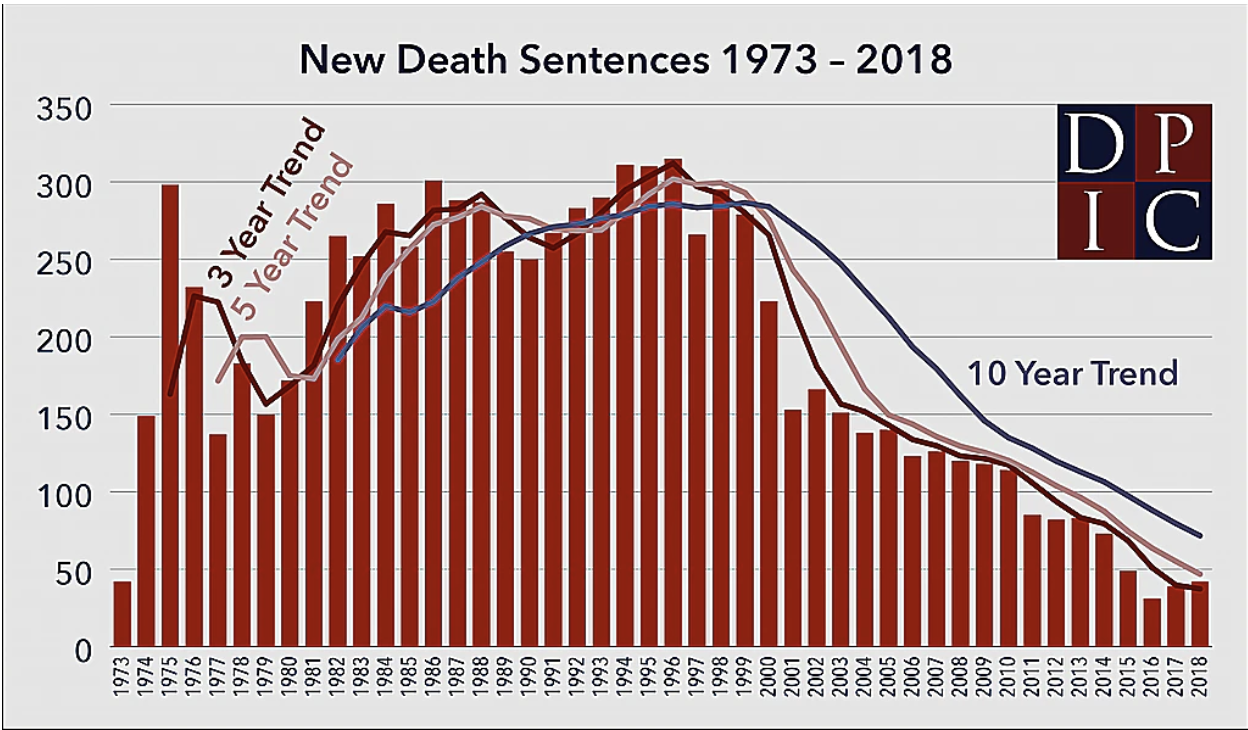|
On February 22, 2021, both houses of the Virginia General Assembly approved legislation to abolish the death penalty. When Governor Ralph Northam signs the bill into law, which he has already indicated he will do, Virginia will become the 23rd state to abolish capital punishment, and the first southern state to do so. This is a historic step forward in the fight for criminal justice reform, given the inequities in the death penalty’s application. Historically, Black defendants have received death sentences far more frequently than white defendants, often for lesser crimes. In addition, research shows that the race of the victim has been a determining factor in sentencing, as crimes with white victims are more likely to lead to death sentence convictions than those with Black victims. A host of activists have noted the gender and socioeconomic discrepancies in death penalty sentencing. Abolishing capital punishment will ultimately help eliminate some of these inequitable sentencing practices. The death penalty has a long and storied history, especially in Virginia. In fact, the first recorded execution in America was in the Jamestown colony in 1608. Shortly after that, the Virginia governor enacted a law legalizing the death penalty for even the most minor of offenses. The state has executed over 1,300 people since then. This is a national issue as well, although death sentences have been declining in recent years. (Source: Death Penalty Information Center) Despite some successful attempts to reform the death penalty in the late 18th century and early 19th century--particularly noteworthy is Pennsylvania’s establishment of “degrees of murder” and its subsequent abolition of capital punishment for everything but first-degree murder in 1794--most states continued to utilize the death penalty through the 20th century. In fact, some states even increased its use, especially for crimes committed by slaves. In 1838, Tennessee enacted discretionary death penalty sentencing, and other states soon followed suit. However, that did not stop the use of capital punishment; nationwide, the average number of executions per year was still increasing. In the early 1900s, six states abolished the death penalty completely, although five of the six soon overturned this at the start of World War I. Only in the 1950s did the U.S. begin to move away from capital punishment, as public support for it waned and the number of executions dropped dramatically. The greatest restriction on capital punishment came from the Supreme Court in 1972. In Furman v. Georgia, the Court ruled 5-4 that the use of the death penalty in this case and two related cases constituted cruel and unusual punishment, in violation of the Eighth and Fourteenth Amendments. The Justices also noted that the death penalty was often applied arbitrarily and applied disproportionately to minorities. The Furman v. Georgia ruling effectively put the death penalty on hold, as states rewrote their laws to ensure that capital punishment was applied fairly. When a challenge to the death penalty was again brought before the Supreme Court in the 1976 case Gregg v. Georgia, the Court ruled that the death penalty itself was constitutional. The Court decided that the statutes in question, including sentencing guidelines for juries and separate trials for guilt and sentencing, were constitutional as well. Since Gregg v. Georgia, over 1,500 people have been executed in the U.S. Virginia alone has executed 113 people, more than any state other than Texas. Other limitations to the death penalty have since been enacted by the Supreme Court. In the 1988 case Thompson v. Oklahoma, the Court ruled that executing someone who was under the age of 16 violated the Eighth Amendment, and in the 2005 case Roper v. Simmons, it ruled that executing a minor was unconstitutional. In the 2002 case Atkins v. Virginia, the Court ruled that executing someone with an intellectual disability was also a violation of the Eighth Amendment. As of 2020, there are 22 states that have abolished the death penalty, and three others have governor-imposed moratoriums. So why does it matter that Virginia is going to join the ranks of death penalty abolishers? For starters, most of the states that have already abolished the death penalty are states that never used it much anyway. Virginia has a long history of executions, so eliminating capital punishment is an important step towards a more equitable state. The death penalty is also expensive and places a large burden on taxpayers. A 2010 study found that federal death penalty cases cost eight times more than non-death penalty murder cases. There is also no credible evidence that it works as a deterrent for crime. Furthermore, too many innocent people have been sentenced to death. Since 1973, 185 people on death row have been exonerated. More than half of those people were Black, which again points to racial disparities in sentencing. While we’ll never know for sure how many innocent people have been executed, the number is likely much higher. In fact, a 2014 study found that at least 4.1 percent of people who are sentenced to death were actually innocent. If this has been true since the advent of the death penalty in the U.S., it is fair to assume that hundreds of innocent people have been executed. That alone is reason enough to abolish capital punishment. It is time to eliminate this antiquated system. Not only does the death penalty disproportionately affect minority populations, it also takes the lives of too many innocent people. By abolishing the death penalty, Virginia is taking a large step forward, a step that may encourage other southern states to follow suit in the months and years to come.
The views expressed above are solely the author's and are not endorsed by the Virginia Policy Review, The Frank Batten School of Leadership and Public Policy, or the University of Virginia. Although this organization has members who are University of Virginia students and may have University employees associated or engaged in its activities and affairs, the organization is not a part of or an agency of the University. It is a separate and independent organization which is responsible for and manages its own activities and affairs. The University does not direct, supervise or control the organization and is not responsible for the organization’s contracts, acts, or omissions.
0 Comments
Your comment will be posted after it is approved.
Leave a Reply. |
Categories
All
Archives
April 2022
|
ADDRESSVirginia Policy Review
235 McCormick Rd. Charlottesville, VA 22904 |
|
SOCIAL MEDIA |

